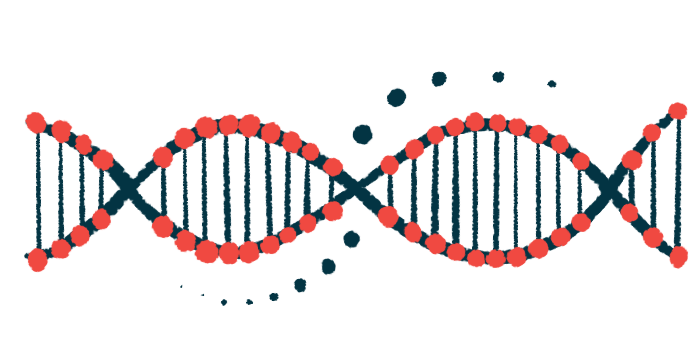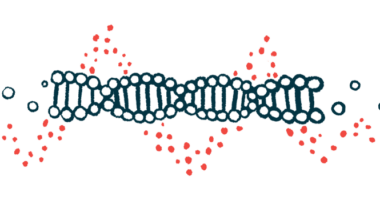Therapeutic Targets for Severe COVID-19 in CF Patients ID’d
Hesperetin is most promising medicine to interact with differently expressed genes, researchers said

Researchers have identified a set of genes that could represent therapeutic targets to prevent severe complications from COVID-19 infection in people with cystic fibrosis (CF).
Three of these genes were at higher levels in patients with either COVID-19, CF, or chronic kidney disease (CKD), and a larger network of six appeared to be broadly involved in the interaction between the conditions, data showed.
In further analysis, the researchers identified existing medications that could interact with these gene networks, “which may have a significant impact on reducing the burden of these diseases in the future,” they wrote.
The study, “Identification of differentially expressed genes and their major pathways among the patient with COVID-19, cystic fibrosis, and chronic kidney disease,” was published in Informatics in Medicine Unlocked.
COVID-19 is an infectious respiratory disease. Most people infected will have mild or moderate respiratory symptoms, but COVID-19 can be more severe for patients with CF who are already prone to more severe lung infections and worse respiratory function.
Research has shown that CF patients are at a higher risk of hospitalization, a need for intensive care, and kidney injury related to COVID-19 compared with those without CF. Infection can also exacerbate existing CF lung symptoms and contribute to lung damage.
In this study, the scientists looked for genetic changes that might underlie this increased vulnerability in CF patients. They also evaluated genetic changes in people with chronic kidney disease who may also be more vulnerable to severe COVID-19 infection.
To perform the analysis, the team used three sets of data, one each from COVID-19 patients, CF patients, and people with CKD. Each dataset also included a group of healthy controls for comparison.
For each set of data, the team searched for genes that had different levels of expression, or activity, between patients and healthy people. Any genes that showed differences were dubbed differentially-expressed genes, or DEGs.
They then looked to see if any DEGs were common across the three datasets. They found 849 genes that were altered across all three diseases.
Many of the altered genes were related to the function of mitochondria, the powerhouses of cells that also play a role in immune responses during an infection.
Three genes in particular were at higher levels in COVID-19, CF, and CKD compared with healthy people. These genes were PRPF3, FOXN2, and RIOK3. A network of six hub genes, including PRPF3, FOXN2, and RIOK3 as well as UBC, HNF4A and ELAVL1 were identified as acting as relays for other proteins’ networks.
“It is very important to identify the hub genes,” the researchers wrote, noting they can “help to identify possible candidate medications because they play a key role in the interaction between COVID-19 and the patient with CF and [chronic kidney disease].”
A group of eight transcription factors were also identified that might be linked to the identified DEGs. Transcription factors are molecules that regulate the transformation of DNA to RNA, the template that’s then used to make a functional protein. Their activity directly influences how much, if any, of a protein gets made.
Using their identified network, the team searched for existing medications that were predicted to interact with it. Any identified medications could serve as potential therapeutics to reduce the risk of severe COVID-19 complications in CF patients, the researchers noted.
In total, 20 medications were found that might interact with the DEGs. Most targeted RIOK3. According to the researchers, hesperetin appeared as the most promising candidate. Hesperetin is a naturally-occurring molecule found in lemons and oranges, with reported anti-inflammatory effects. It’s been shown to inhibit viruses, including COVID-19, from being able to replicate, or grow.
The medications that interact with the genes that were identified will require additional laboratory experiments to “evaluate and validate their effectiveness,” the researchers wrote.
“We believe that the results obtained in this study could serve as a guide for future work in the laboratory,” they wrote.








